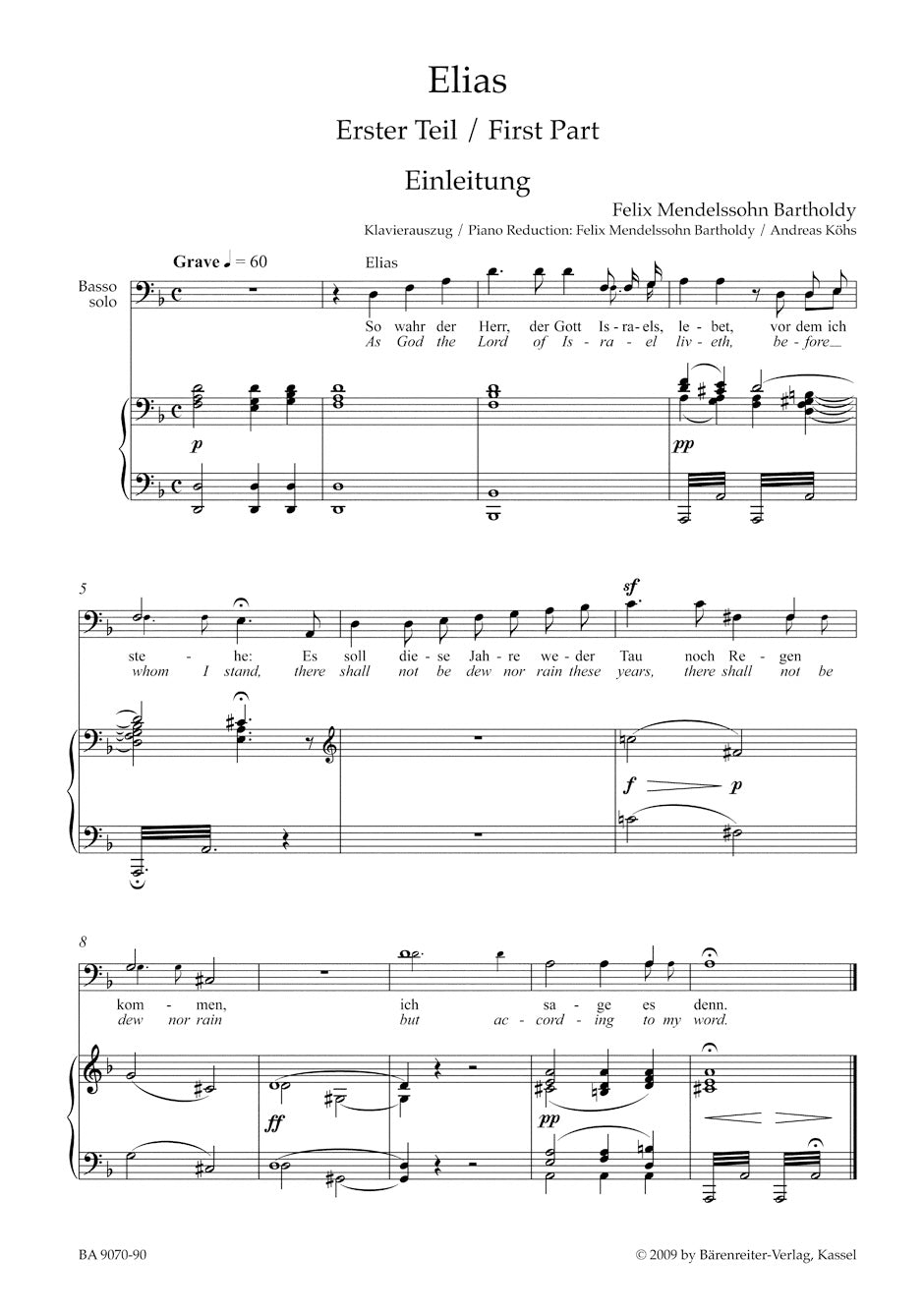


BARENREITER - 345062
Mendelssohn Elijah Op. 70
Composer: Felix Mendelssohn
Publisher: Bärenreiter
Format: Choral Score
Binding: Paperback
Dimensions: 10.6 in x 7.5 in
Pages: 311
Mendelssohn Elijah Op. 70
Juilliard Store
144 West 66th Street
New York NY 10023
United States
Choose options
Mendelssohn Elijah Op. 70
Juilliard Store
144 West 66th Street
New York NY 10023
United States
Mendelssohn Elijah Op. 70
Juilliard Store
144 West 66th Street
New York NY 10023
United States
Editor: Seaton, Douglass
Arranger: Mendelssohn Bartholdy, Felix / Köhs, Andreas
Orchestral scoring : 2SSolo/2ASolo/2TSolo/2BSolo/Mixed choir: SSAATTBB/Orch
Language(s) of work: D/GB
Product format: vocal score, Urtext edition
Binding: Paperback
Pages / Format: XII, 311 - 27,0 x 19,0 cm
Following the first performance, Mendelssohn undertook a revision of the oratorio in which whole numbers were removed and new ones substituted. This is the version which was first heard in 1847 in London and which is still performed today.
This Urtext edition of the oratorio edited by the Mendelssohn specialist Douglass Seaton is based on all critical sources. The edition reflects the latest research findings and includes both English and German singing texts.
A critical commentary completes the new edition.
